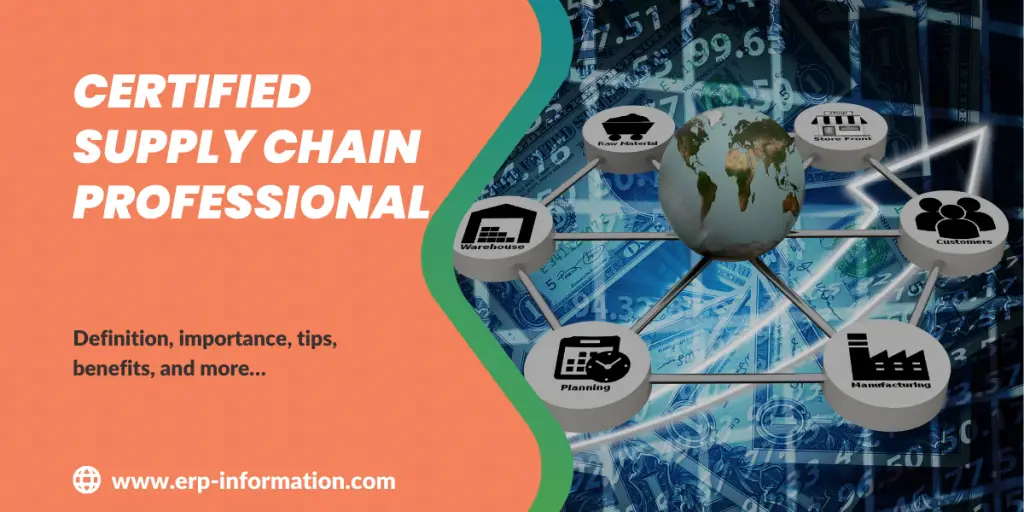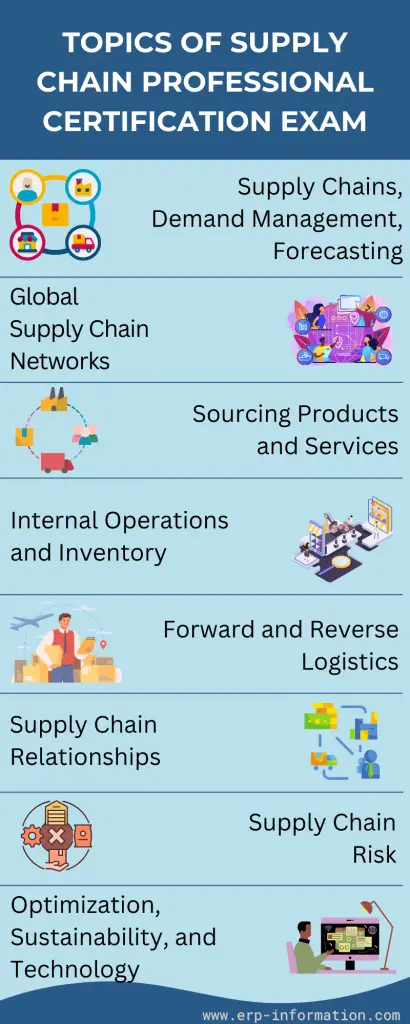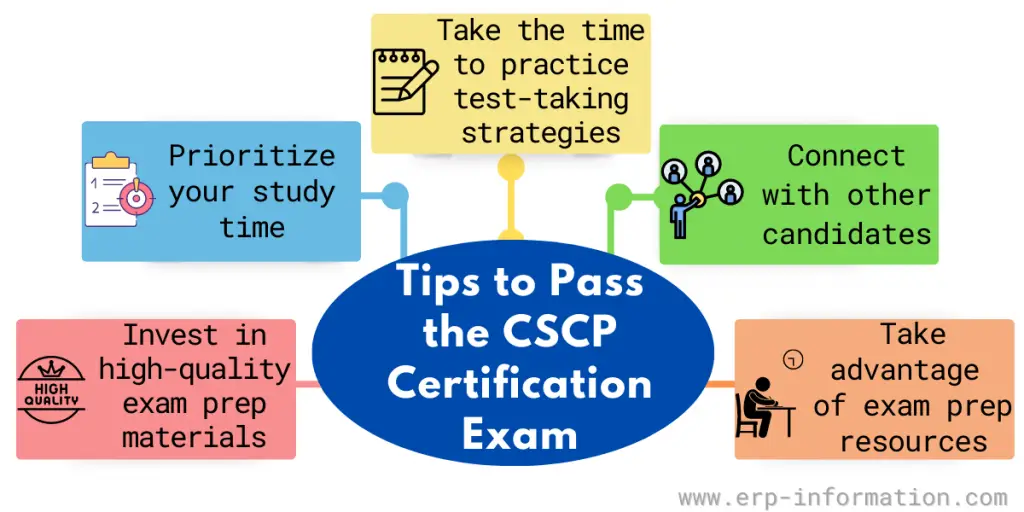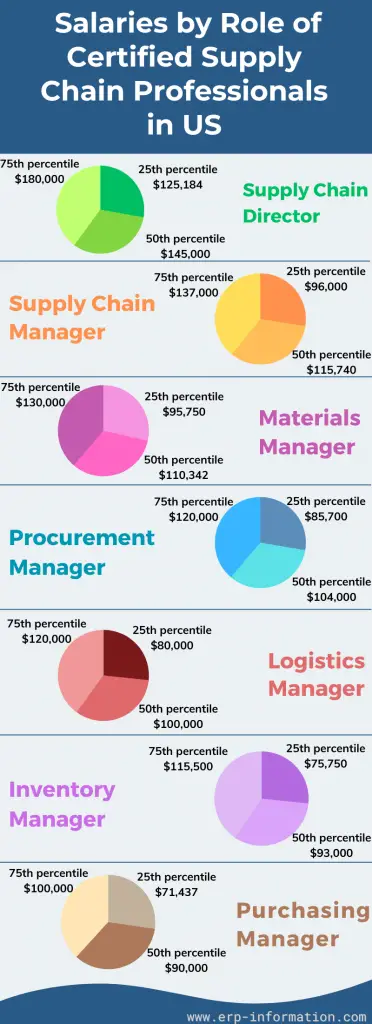The supply chain certified professional is a new and important certification in supply chain management.
The certification is brand new, and only a few professionals have earned it. However, achieving the supply chain professional designation shows that you are serious about your career in supply chain management.
This blog will help you to understand more about the certified supply chain professional, including its importance, steps to gain certification, the eligibility required for this certification, and the topics covered in the exam.
It will also discuss the documents needed to submit, available learning options, benefits, tips, and maintenance of the certificate.
What is a Certified Supply Chain Professional?
It is a highly skilled and experienced professional in supply chain management. This certification demonstrates that you have the knowledge and skills to manage complex global supply chains effectively and efficiently.
To earn this certification, you must have extensive skills in the supply chain management field and demonstrate your proficiency in inventory management, logistics, global sourcing, purchasing, and more.
Why is it important?
It is important in today’s competitive and fast-paced business landscape. It shows that you are committed to your career in supply chain management and have the skills and knowledge needed to successfully manage complex global supply chains.
Steps to Earn the Certification
There are several steps to earning the certification of supply chain professional designation, including,
- Completing relevant coursework
- Passing a rigorous exam
- Demonstrating your knowledge through case studies and other assessments
To become a certified supply chain professional, you must first have certain education and experience.
Eligibility Criteria
Candidate must meet at least one of the bellow listed criteria to be eligible to take the CSCP exam:
- You need to have a minimum of three years of supply chain business experience
- Bachelor’s degree conferred by a reputable university or equivalent international degree
- Have an active CPIM, CPIM-F, CIRM, SCOR-P, CPM, CPSM, CTL, CLTD, CLTD-F, or CSM designation
Modules and Topics of the CSCP Learning System
The CSCP learning system consists of 8 modules across two books. Topics covered in each module are as follows.
- Module 1 – Supply Chains, Demand Management, Forecasting
- Module 2 – Global Supply Chain Networks
- Module 3 – Sourcing Products and Services
- Module 4 – Internal Operations and Inventory
- Module 5 – Forward and Reverse Logistics
- Module 6 – Supply Chain Relationships
- Module 7 – Supply Chain Risk
- Module 8 – Optimization, Sustainability, and Technology
Documents Required
Candidates should collect all necessary documentation and information before starting their application. Once all the required documentation is compiled, candidates must group the electronic files into .zip files. The required documents include the following,
Certification Overview Documents
These documents describe the key requirements and benefits of earning the certified supply chain professional designation.
Example
- The public, private, and non-profit status of the organization
- Nature of business
Key Processes and Proficiency Documents
These documents outline the specific knowledge and skills you must demonstrate to pass the certification exam successfully.
Example
Copy of applicable environmental/social responsibility certifications for the enterprise (e.g., ISO accreditations or proof of implementation)
- Supplier scorecard/audit results
Policy Documents
These documents provide guidelines and best practices for the supply chain management.
Example
- Employee compensation policy
- Waste disposal & energy usage policy
Available Learning Options
Several learning options are available to candidates preparing for the exam, including online self-study courses, live webinars and seminars, and in-person training programs.
Provider of CSCP exam study materials
APICS Supply Chain Professional Certification
In this exam, candidates are provided 150 multiple-choice questions to answer in 3.5 hours.
Certification cost
- Self-Study material for exam Preparation costs $1,095 for members and $1,520 for non-members.
- APICS CSCP Certification Exam costs $1,095 for members and $1,425 for non-members
- CSCP Self-Study material + Exam + retake fee with Membership Exam cost $1,970 for members and $2,169 for non-members
Benefits of Becoming a Certified Professional
Some key benefits of earning a supply chain professional designation include the following.
- Increased career opportunities
- Greater earning potential
- Improved credentials and credibility in the field
- Access to specialized resources and networks
- And an expanded knowledge base in supply chain management.
Tips to Pass Certification Exam
- Invest in high-quality exam prep materials and study resources. That will help you understand the questions that are likely to be on the exam.
- Prioritize your study time, and focus on understanding the material in detail. That will ensure that you have a strong grasp of the concepts covered on the exam.
- Take the time to practice test-taking strategies, such as pacing yourself and reading the entire question carefully before selecting an answer. It will help you to save time and avoid making careless mistakes.
- Connect with other candidates, either in-person or online, preparing for the exam. That can help you to stay motivated and get feedback on your studying process.
- Take advantage of exam prep resources, such as online training courses or practice exams. These can help you to refine your test-taking skills further.
Maintainance of CSCP Certificate
Once you have successfully earned your certification, it is important to maintain your credentials by staying up-to-date with the latest developments and best practices in supply chain management. That may involve,
- Participating in regular continuing education programs,
- Attending conferences and networking events
- Joining professional organizations such as APICS.
- Some employers may require their staff to complete periodic recertification exams or other workforce development activities to maintain their CSCP certification.
Top Certifications for Supply Chain Management
The below list provides you with top certifications for supply chain management.
- ASCM Certified Supply Chain Professional certification (CSCP)
- ASCM Certified in Production and Inventory Management (CPIM)
- ASCM Certified in Logistics, Transportation, and Distribution (CLTD)
- ASCM Supply Chain Operations Reference (SCOR-P) Endorsement
- SCPro Council of Supply Chain Management Professionals (CSCMP)
- SCPro Council of Supply Chain Management Fundamentals
- SOLE Certified Professional Logistician (CPL)
- ISM Certified Professional in Supply Management (CPSM)
- ISM Certified Professional in Supplier Diversity (CPSD)
- NCMA Certified Professional Contract Manager (CPCM)
FAQ
What is the salary of a certified supply chain professional?
The salary levels can vary depending on several factors, including industry, experience level, job title, and location. However, according to data from Payscale, the salary for a certified supply chain professional is typically in the range of $50,000 to $87,000. In addition, some individuals may also earn bonus compensation or other types of financial incentives based on their performance in the workplace.
The below infographic shows a salary comparison of varied roles of supply chain professionals in the US with percentages.
Conclusion
Overall, becoming a certified supply chain professional is an excellent career choice for professionals looking to advance their skills and credentials in the field of supply chain management.
Whether you are just starting your profession or looking to take on new challenges, earning a CSCP certification can help boost your expertise, credibility, and marketability.
Reference



